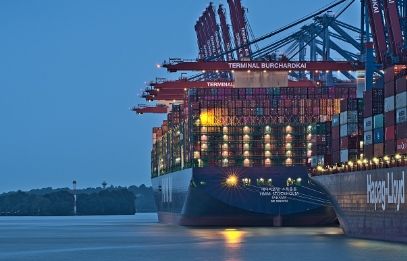What are Export Controls and How Do They Impact International Trade?
Export controls are government regulations that restrict the export of certain goods, technologies, and services for reasons related to national security, foreign policy, and economic protection. These controls are crucial in regulating the transfer of strategically important or sensitive items, preventing the proliferation of weapons, protecting national interests, and complying with international agreements. This article delves into the concept of export controls, their purposes, and their implications for businesses engaged in international trade.

Understanding Export Controls
Export controls typically involve laws and regulations that require exporters to obtain licenses before certain goods, software, technology, or related technical data can be exported. The level of restriction can vary greatly depending on the item’s potential application, with military and dual-use items (those that have both civilian and military applications) often subject to the most stringent controls.
Key Purposes of Export Controls
1. National Security: Preventing the proliferation of weapons of mass destruction (WMDs) and their delivery systems to non-state actors or hostile nations.
2. Foreign Policy: Enforcing sanctions or embargoes that restrict trade with specific countries, entities, or individuals.
3. Economic Protection: Safeguarding domestic industries by limiting the export of critical technologies that could give potential adversaries a competitive edge.
Types of Export Controls
• Military Controls: Cover goods and technologies designed or adapted for military use and listed on various military goods lists.
• Dual-Use Controls: Apply to goods and technologies that can be used for both civil and military purposes, listed under dual-use lists.
• Sanctions and Embargoes: Target specific countries, entities, or individuals with whom trade is restricted or prohibited due to political or security reasons.
Implications of Export Controls on Global Trade
• Compliance Requirements: Businesses must navigate complex licensing procedures and compliance requirements, which can be resource-intensive and costly.
• Trade Barriers: Export controls can act as barriers to trade, particularly in high-tech industries where innovation and rapid sharing of technologies are crucial.
• Market Access: Restrictions may limit the markets available to businesses, affecting their ability to expand internationally.
Managing Export Controls in International Business
1. Understanding Legal Obligations: Businesses must stay informed about the export control laws and regulations applicable in their country and the destinations of their exports.
2. Risk Management: Implementing compliance programs that assess and manage the risks associated with exporting controlled goods.
3. License Applications: Preparing and submitting necessary documentation to obtain export licenses when required.
4. Training and Awareness: Ensuring that all relevant employees are trained on export control requirements and the importance of compliance.
Challenges Faced by Businesses
• Complexity of Regulations: Keeping up with the frequently changing regulations and understanding their application can be challenging.
• Costs of Compliance: The financial burden of maintaining compliance, including the costs of obtaining licenses and implementing internal control systems, can be significant.
• Delay in Shipments: The time taken to obtain necessary licenses can delay shipments and disrupt supply chains.
Best Practices for Navigating Export Controls
• Leverage Expertise: Working with export control consultants or legal experts can help businesses navigate the complexities of compliance.
• Automate Compliance Processes: Utilizing software solutions that help track and manage compliance with export controls.
• Regular Audits: Conducting regular audits to ensure compliance processes are effective and that all required licenses are obtained for controlled exports.
Conclusion
Export controls are a critical element of international trade regulation, playing a vital role in safeguarding national security and foreign policy interests. While they present significant challenges to businesses engaged in the global market, effective management and compliance with these regulations are essential for maintaining good standing in international trade. By understanding and strategically addressing the implications of export controls, businesses can minimize risks and maximize their global trade potential.
Related articles

 WeChat of CBiBank
WeChat of CBiBank